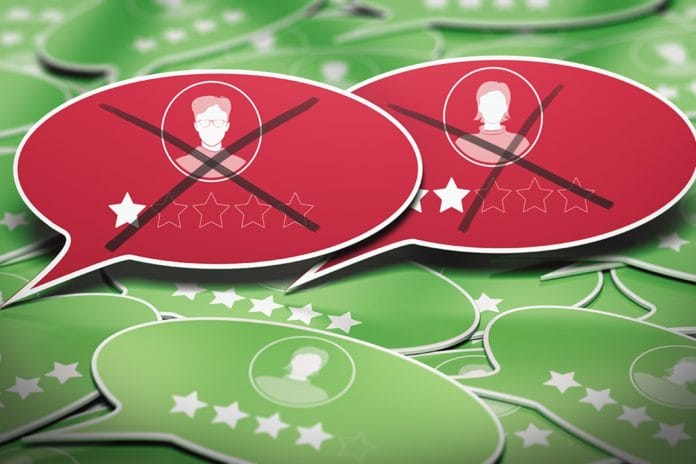There are two sides to every story except when it comes to online and social media dental practice reviews. As the consumer’s ability to review and speak out rises, you may have noticed a large increase in media for consumers to spread their opinions. The world of dentistry cannot go unaffected by this.
At times, reviews can be a great boost to our practices. From patients giving high ratings for gentle, thorough care to a patient’s picture of their new dental restorations, social media and the internet allows our patients to positively influence their online friends to visit our offices. A great review reflects a great patient experience. But what about a negative review?
We all know it happens. Sometimes a patient leaves unhappy due to cost. Sometimes it is a patient struggling with denial over necessary treatment, and sometimes there are just patients that cannot be pleased. A patient leaves our office unhappy with their experience never to be heard from again.
Or, so we thought.
It often does not take long for the review to surface. Some patients take to social media while others choose online review sites. A dreaded low star rating is only made worse when accompanied by a patient explanation of their low review. Of course, we believe it should be a patient’s right to seek treatment where they choose, a right to speak out about negative experiences, and a right to seek a second opinion. We often encourage our patients to take control of their health and seek a health-care team that makes them feel comfortable.
When they’re Not Truthful
But what do we do when a patient shares an untruthful or inaccurate negative review?
Our natural response is to retaliate. We want to defend our treatment choices, good ethics, and thorough care. While completely rational in feeling, this type of defense can actually violate our patients’ privacy.1
As health-care professionals, we are all familiar that we cannot disclose or discuss patient treatment or care unless authorized to by said patient. By retaliating to an online review through commenting, we risk disclosing private health information of said patient.1 It is important that we are very cautious with our responses to patient reviews.
Our purpose as healthcare professionals is patient care, and violating patient privacy does not fall under optimum patient care.
So how do we handle unfair negative reviews?
- Respond Generically
In order to protect our patient’s privacy, we must be careful with the response that we give. Any confirmation of the patient’s visit can violate patient rights. A response encouraging a patient to reach out to your office personally keeps patients protected.1 Keeping a response generic ensures no private information is shared.
For instance, if a patient’s complaint involves the amount of paperwork required prior to being seen, a generic response of, “At XYZ Dental Care, we work to minimize time spent in the office filling out paperwork by offering our annual paperwork online to be completed prior to appointments.”
- Perspective
Think about the last time you wanted to try something new. If you are anything like me, you probably scanned online reviews before making your decision. Most reviews range from good to bad, even on good products. One bad review typically does not steer us away from a good product with a majority of good reviews.
It is important to remember that, like anything, a dental office is not a one-size-fits-all. Other prospective patients reading these reviews can see through the negative review and focus on the majority of good reviews.
- Reflection
While many times a negative review may be completely unfounded, all offices have areas where it can improve. Using this experience to evaluate and improve your customer service can help create ideal patient experiences for future patients. Work with your team to focus on patient care and service.
A negative practice review can be upsetting. It is natural to feel the need to defend your practice and patient care. However, by ensuring our response is generic, changing our perspective, and reflecting on our customer service, we can allow a negative review to leave a positive impact on our practices.
Now Listen to the Today’s RDH Dental Hygiene Podcast Below:
Reference
- Summary of the HIPAA Privacy Rule. HHS Office of the Secretary, Office for Civil Rights, & Ocr. 2013, July 26. Retrieved from https://www.hhs.gov/hipaa/for-professionals/privacy/laws-regulations/index.html












